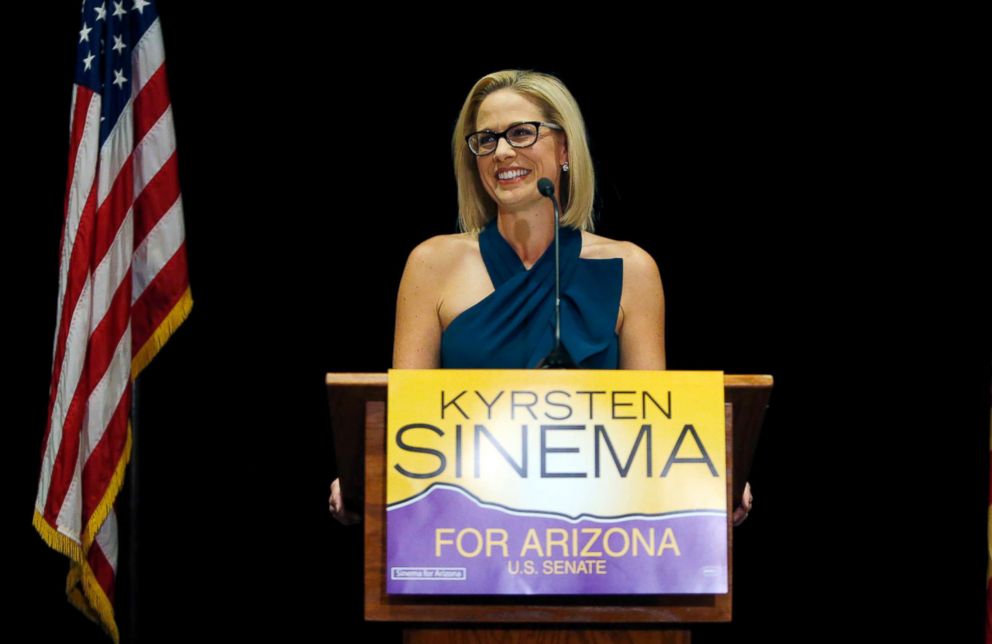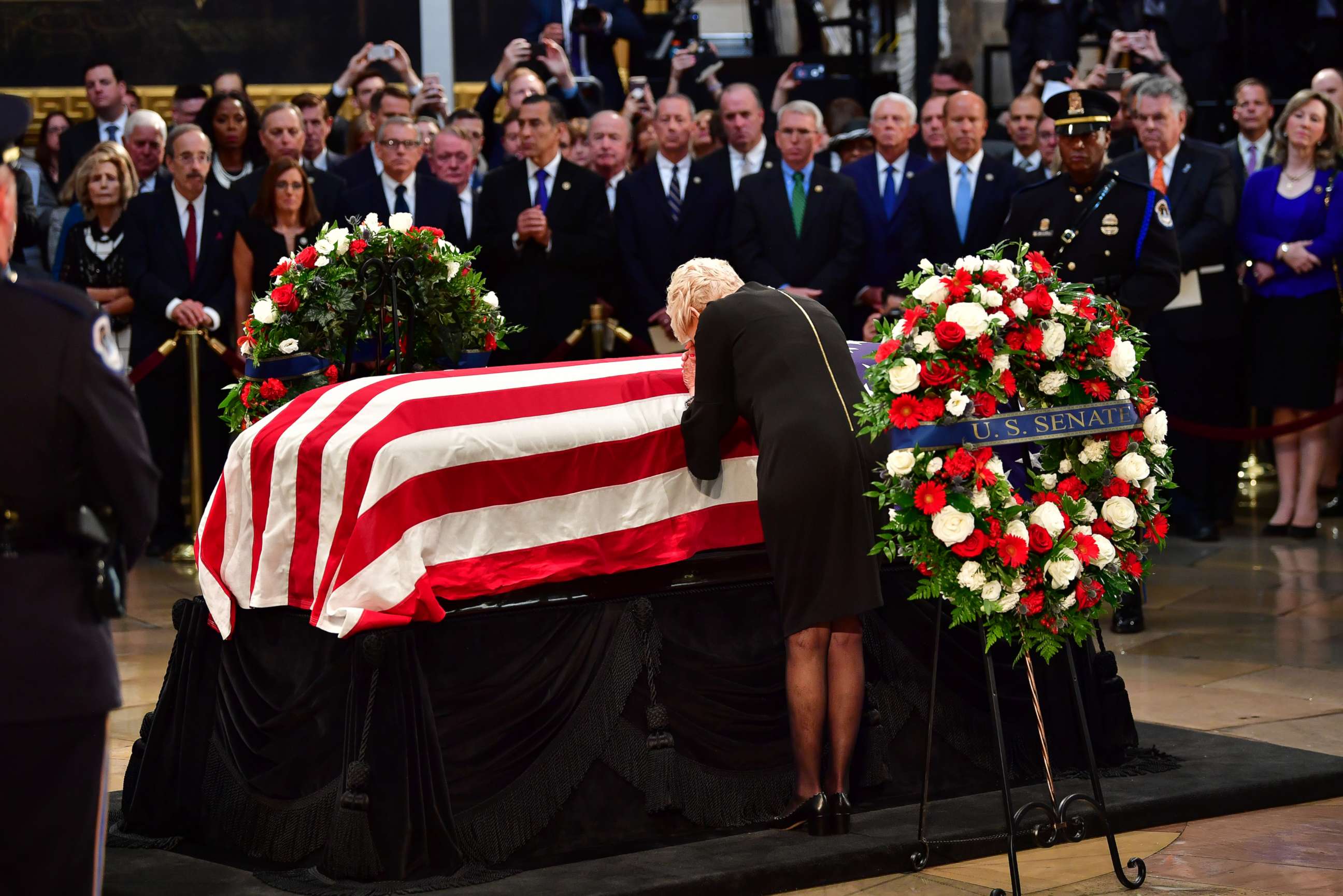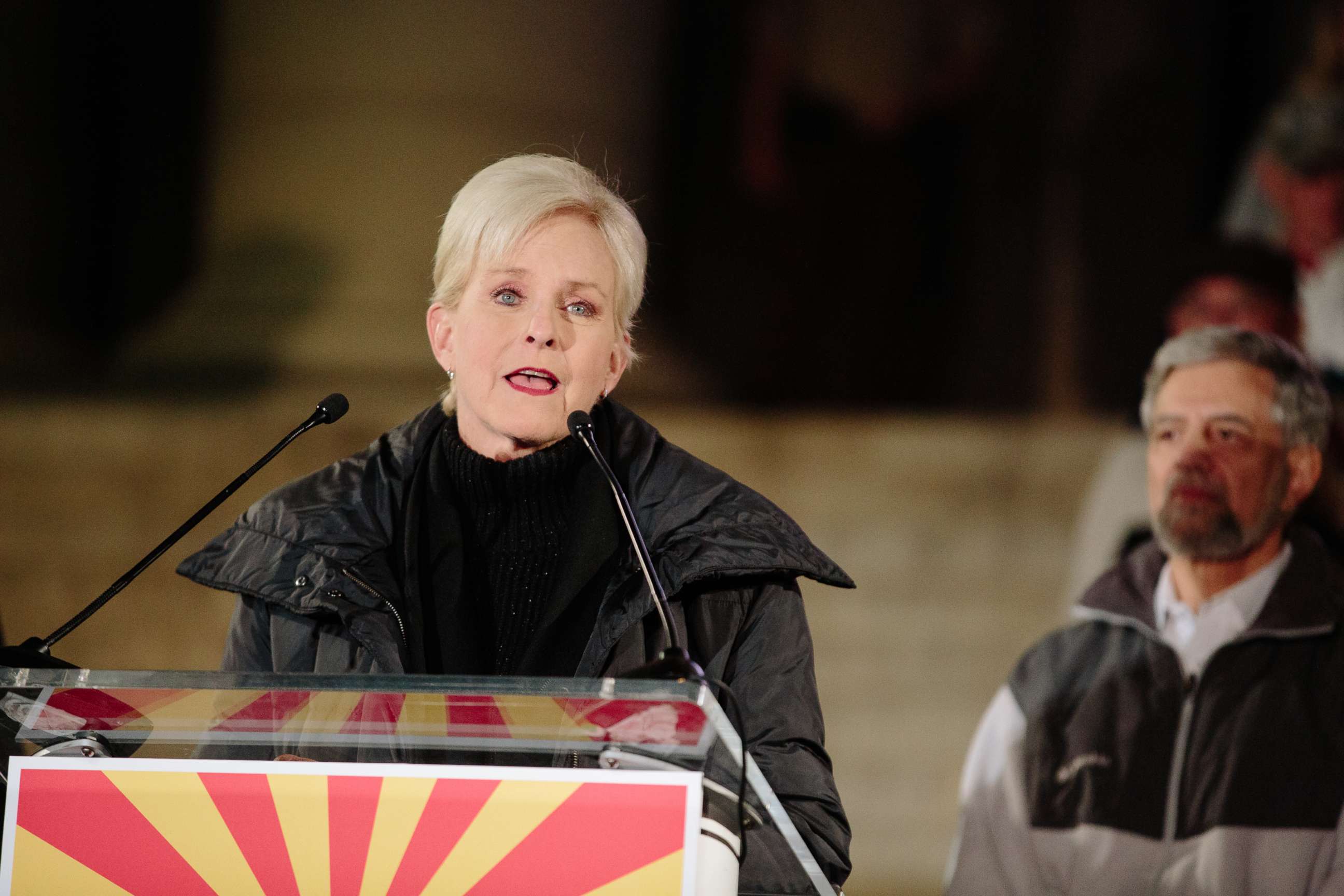John McCain's outsize impact on the Arizona senate race
A Democrat flipped Sen. Jeff Flake's open senate seat.
John McCain's impact on Arizona politics was still on display months after his death in a race for another senator's seat.
McCain, who lost his battle to glioblastoma days before the state's primary in August, still played an outsize role in the race to fill Republican Sen. Jeff Flake's seat, political analysts said.
The latest example came when Democratic Senator-elect Kyrsten Sinema praised him in her acceptance speech Monday night.
"A few months ago, we lost a legend who exemplified that spirit and all the best of Arizona. His example shines a light on the way forward," Sinema said. She went on to call him "irreplaceable" and noted that "it's up to us to carry on Sen. McCain's legacy."
That Sinema, an Arizona native who touted her political independence, would praise McCain after her victory didn't stand out to many. But what did stand out is that McCain’s name was almost absent from the campaign that Sinema wound up winning. Critically, to many Republicans, GOP nominee Rep. Martha McSally appeared hesitant to praise McCain, a member of her own party, during the primaries. That may have had a lot to do with McSally's ties to President Donald Trump.

"McSally fully embraced the president and his agenda and his approach to governing and from the very beginning, Kyrsten Sinema, while not necessarily explicitly saying this, embraced the campaign theme that emphasizes moderation and cooperation along the lines of what Sen. McCain advocated," said Richard Herrera, a political science professor at Arizona State University.
McSally, who conceded to Sinema on Monday, once campaigned with the late Sen. McCain when she was running for Congress. But this time around, as she battled against two conservative Republicans in the primary, former Sheriff Joe Arpaio and former state senator Kelli Ward, she appeared to distance herself from McCain and his more centrist policies.
All three Republican candidates seemed to be regularly trying to outdo one another with their various ties to Trump. The president's longstanding tensions with McCain may explain their own decisions to distance themselves from the late senator and his legacy as a moderate Republican.
Many saw that dynamic at work when McSally and Trump attended the Aug. 13 signing of the Defense Authorization Act, the full title of which is the John S. McCain National Defense Authorization Act for Fiscal Year 2019. Neither Trump nor McSally mentioned the senator at the event.
That prompted the ire of the senator's daughter, Meghan McCain, who wrote on Twitter that McSally's "inability to even mention my father's name when discussing the bill named in his honor is disgraceful (just as it was with Trump) - I had such higher hopes for the next generation of leadership in my home state."
Meghan McCain revisited the Aug. 13 incident on "The View" Tuesday morning, the day after McSally conceded to Sinema.
"To say it didn't go over well with me and many Arizonans is putting it nicely," Meghan McCain said before adding, "I don't think that's why she didn't win. This was a very close race for a lot of different reasons."
For her part, McSally did praise John McCain regularly after securing her primary win, and that praise picked up noticeably after his death on Aug. 25.
During her primary night victory speech on Aug. 28, McSally called for a moment of silence in John McCain's honor, and remembered him as "an American hero."
She recalled a memory of how he campaigned for her and made jokes about their shared military service.
She thanked him for "taking his time to support a fellow fighter pilot who followed in his footsteps."
"I am forever grateful to have had the chance to know him to learn from him and even to work with him," she said in the speech.
She was also pictured saluting his coffin when it laid in state in the Capitol Rotunda on Aug. 31.

But ultimately, McSally's praise for the late senator didn't appear to be enough to earn her an endorsement from the McCain family.
When Cindy McCain made a rare public appearance and spoke at the Arizona GOP Election Eve rally on Nov. 5, she praised Gov. Doug Ducey and Sen. Jon Kyl, who was appointed to temporarily serve in Sen. McCain's seat. Cindy McCain made no explicit mention about McSally, even though she was one of the most prominent politicians at the event.

The role that McCain played in the senate race, even though he wasn't directly connected to it, comes as little surprise to political experts.
"McCain, while he was no longer popular among the Republican base, was very popular with swing voters who decided the Arizona winners," said Matthew Dowd, an ABC News political analyst.
"Voters like the idea of someone being independent like McCain, willing to hold a president of his own party responsible. And many voters were going to the polls in Arizona with trying to pick the person most likely to hold the president accountable -- that accrued to Sinema’s benefit," Dowd added.
Mark Salter, McCain's former speechwriter and longtime aide, commented on Twitter that the McCain brand of politics helped certain candidates win in the former senator's home state, including Gov. Ducey and Sinema.
"Trump, who barely won AZ two years ago, is even more disliked there now. Arizonans knew Trump’s caravan of terrorist lepers was bullshit. McSally was ill advised to embrace it. Ducey ran as a McCain like problem solver. So did Sinema.Lesson for Rs: don’t be Trump. Be McCain," Salter wrote in a tweet that he posted shortly after McSally conceded.
Herrera said that McSally likely lost the support of independents and moderate Republicans by embracing Trump over McCain and instead won the support of die-hard Trump fans.
"What's ironic, kind of, is she would have had those Republican voters anyway because there was no way they were going to support Sinema," Herrera added.




